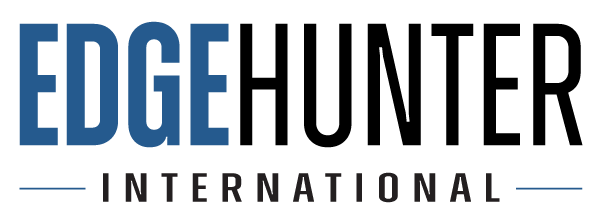How Digital Transformation and AI Are Shaping Job Opportunities
The IT industry in 2025 is at the heart of digital transformation, shaping how businesses operate and connect globally.
Advancements in AI, cloud computing, and cybersecurity are driving unprecedented demand for skilled professionals across both technical and nontechnical roles. Employers face challenges attracting top talent, from specialized technical expertise to cross-functional capabilities, while job seekers must embrace continuous learning, certifications, and strategic networking to stay competitive.
This comprehensive guide explores the factors fueling IT hiring, the ongoing prioritization of dgital transformation, and actionable strategies for companies and professionals to thrive in a competitive talent market.
Key Takeaways
| Highlight | Summary |
|---|---|
| Digital Transformation | Organizations are accelerating AI, cloud, and cybersecurity initiatives, driving demand for IT talent across industries. |
| High Demand for Specialized Skills | Expertise in AI, machine learning, cloud computing, cybersecurity, and data analytics is critical for IT roles in 2025. |
| Recruitment Challenges | Employers face talent shortages and competition for top professionals across technical and nontechnical roles. |
| Employer Strategies | Companies can attract talent by offering competitive pay, flexible schedules, professional development, wellness initiatives, and specialized recruiters. |
| Job Seeker Tips | Professionals should embrace new technologies, earn in-demand certifications, and build strong professional networks to stand out. |
| Remote & Hybrid Work | Flexible work models expand talent pools and are increasingly expected by IT professionals in 2025. |
| Strategic Value of IT Teams | IT teams are not just support functions; they are critical drivers of innovation, growth, and business resilience. |
- Digital transformation is reshaping recruitment strategies across industries
-
Digital transformation and technological advancements are driving IT hiring in 2025.
-
There is a significant demand for professionals with specialized skills in AI, cybersecurity, and cloud computing.
-
Employers must invest in training, offer flexible work options, and leverage AI in recruitment to attract top talent.
-
Job seekers should focus on developing in-demand skills, showcasing soft skills, and building a strong online presence.
What’s Driving IT Hiring in 2025?
It is no exaggeration to say the information technology (IT) industry underpins the operations of modern businesses and the ways individuals connect and collaborate in the digital era. From cloud-based enterprise solutions to AI-driven analytics platforms, IT has become the backbone of organizational efficiency, enabling real-time decision-making, automation of complex processes, and scalable infrastructure management.
Modern businesses rely on IT not only to streamline operations but also to innovate rapidly, respond to market shifts, and maintain competitive advantage. According to Gartner, global IT spending is projected to reach $5.8 trillion in 2025, reflecting the critical role of technology investment in business strategy.
Remote teams
Beyond corporate operations, IT drives global communication and connectivity, bridging geographical boundaries and enabling seamless collaboration. Remote teams can operate across continents, data flows securely across networks in milliseconds, and customers expect instantaneous service interactions through digital channels.
What the Experts says
Experts like Satya Nadella, CEO of Microsoft, emphasize that “digital transformation is the core of business reinvention in the 21st century,” underscoring how IT is no longer just a support function but a strategic driver of growth, innovation, and global engagement.
The Ongoing Prioritization of Digital Transformation
Digital transformation remains at the forefront of corporate strategy, fundamentally reshaping the IT job market.
Organizations across industries are moving beyond basic digitization to integrate advanced technologies into every facet of their operations, from supply chain management to customer experience. Advancements in AI and machine learning, cloud technologies, and cybersecurity—and companies’ strategic investments in these areas—are fueling demand for IT jobs inside and outside of the IT industry.
Trends on 2025
According to a 2025 McKinsey report, over 70% of large enterprises have accelerated cloud adoption initiatives, while 65% report actively deploying AI solutions in core business functions. These trends are driving unprecedented demand for professionals skilled in AI model development, cloud architecture, and cyber risk management.
The digital transformation imperative is not just about technology adoption—it’s about leveraging IT as a strategic lever for innovation, efficiency, and competitiveness.
Organizations are increasingly seeking talent capable of bridging business strategy and technical execution, particularly roles such as data engineers, cybersecurity analysts, cloud architects, and AI specialists.
Deloitte’s 2025 Global Technology Leadership Survey
Deloitte’s 2025 Global Technology Leadership Survey highlights that 58% of CIOs consider workforce upskilling in emerging technologies a top priority, with companies investing an average of $8,500 per IT employee on continuous learning programs. As Satya Nadella, Microsoft CEO, notes, “Every company is now a software company. The need for digital fluency has never been greater.” The prioritization of digital transformation not only expands IT hiring but also elevates the strategic value of IT teams, positioning them as critical partners in enterprise growth and resilience.
Overcoming Recruiting Challenges in the IT Industry
While the demand for skilled IT professionals continues to grow, the hiring challenges for employers in the IT industry don’t stop with technical roles. IT companies also need to attract and retain high-performing professionals across other fields and departments to keep the business running optimally and contribute to advancing digital priorities.
For instance, marketing, operations, and product management teams play a critical role in ensuring that digital transformation initiatives succeed, yet finding candidates with the right combination of domain knowledge, adaptability, and collaboration skills can be equally challenging. According to a 2025 CompTIA report, 67% of IT employers cite talent gaps as a top barrier to implementing strategic initiatives, underscoring the need for proactive and holistic recruitment strategies.
How employers and job seekers overcome these challenges
To overcome these challenges, employers are adopting multifaceted approaches. Offering competitive pay is a must, but additional incentives such as flexible scheduling, wellness initiatives, and generous time-off policies provide a strong advantage in attracting and retaining skilled talent.
Flexibility has become a non-negotiable expectation, with 74% of IT professionals indicating they would consider leaving a role for better work-life balance options. Employers are also investing heavily in professional development, creating upskilling and reskilling programs to future-proof their workforce.
Partnering with specialized recruiters is another strategic move, allowing companies to tap into broader talent pools, identify hard-to-find skills, and streamline the hiring process. By combining these approaches, IT organizations not only fill current roles but also build a workforce capable of supporting long-term digital transformation goals.
How Technical and Nontechnical Job Seekers Can Stand Out to Employers in the IT Industry
As technology continues to reshape the way people live and work, employers in the IT sector are seeking professionals with the skills, mindset, and curiosity to help drive innovation and growth. The pace of technological change has raised the bar for what employers expect, not only in core technical capabilities but also in adaptability, problem-solving, and cross-functional collaboration. Professionals who can combine domain expertise with an ability to leverage emerging technologies—such as AI, cloud computing, and advanced analytics—are increasingly in high demand.
Moreover, nontechnical roles that support digital transformation, such as project management, user experience, and digital marketing, require individuals who understand technology enough to bridge the gap between business goals and technical implementation.
Competition for top roles can be fierce, whether a job seeker is aiming to join a fast-growing tech startup or an established industry giant. Here are some tips for boosting marketability and standing out to hiring managers:
New skills and technologies
-
Embrace new skills and technologies – Continuously learning and applying the latest tools, programming languages, and frameworks signals adaptability and technical fluency. For example, professionals with hands-on experience in AI integration, cloud infrastructure, or cybersecurity frameworks are positioned ahead of peers.
IT Certifications in-demand
-
Earn in-demand certifications – Certifications such as AWS Certified Solutions Architect, Certified Information Systems Security Professional (CISSP), or Google Professional Data Engineer provide credibility and proof of expertise in key areas that employers actively seek.
Networking Pros
-
Prioritize professional networking – Building a robust network, contributing to industry communities, attending conferences, and sharing knowledge on platforms like LinkedIn can increase visibility, demonstrate thought leadership, and open doors to hidden job opportunities.
By focusing on skill development, credentialing, and networking, both technical and nontechnical professionals can strengthen their value proposition, align with the strategic goals of IT organizations, and position themselves as essential contributors to digital innovation.
Frequently Asked Questions (FAQs)
1. What’s driving hiring for IT jobs in 2025?
Hiring for IT jobs is driven by digital transformation, cloud adoption, AI integration, cybersecurity needs, and the ongoing demand for skilled professionals across both technical and nontechnical roles.
2. Which IT skills are most in demand this year?
Skills in AI and machine learning, cloud computing, cybersecurity, data analytics, and software development are highly sought after. Soft skills such as problem-solving, collaboration, and adaptability are also critical.
3. How can IT companies overcome recruitment challenges?
Employers can overcome hiring challenges by offering competitive pay, flexible schedules, professional development programs, wellness initiatives, and partnering with specialized recruiters to access broader talent pools.
4. What roles outside of IT are critical in tech companies?
Nontechnical roles, including project management, marketing, UX design, and operations, are essential to support digital transformation initiatives and ensure business operations run smoothly.
5. How can job seekers stand out in a competitive IT job market?
Job seekers should embrace new skills and technologies, earn in-demand certifications, build a robust professional network, and demonstrate adaptability and curiosity to drive innovation.
6. Why is digital transformation important for IT hiring?
Digital transformation reshapes business operations and customer engagement, increasing demand for IT talent capable of implementing AI, cloud solutions, and cybersecurity strategies, while also elevating the strategic value of IT teams.
7. What trends are shaping the future of IT employment?
Remote and hybrid work, AI-driven automation, continuous upskilling, and cross-functional collaboration are shaping IT employment, with an emphasis on flexibility and lifelong learning for both technical and nontechnical roles.



